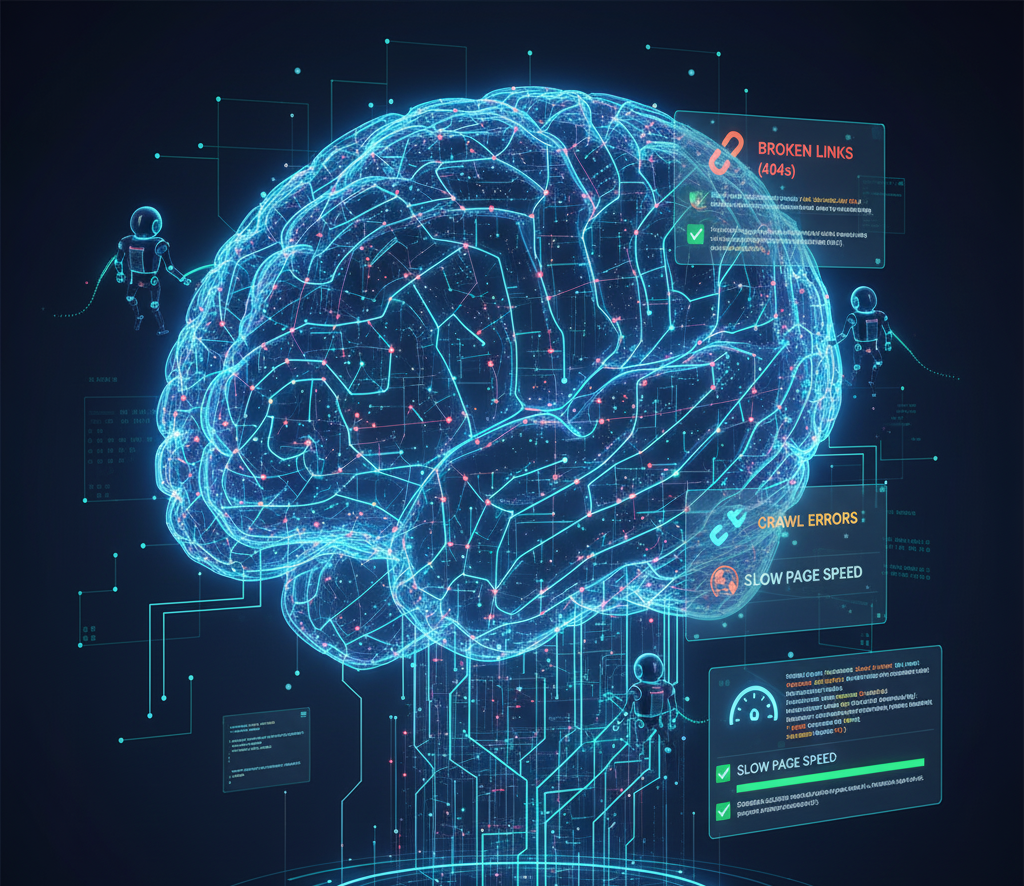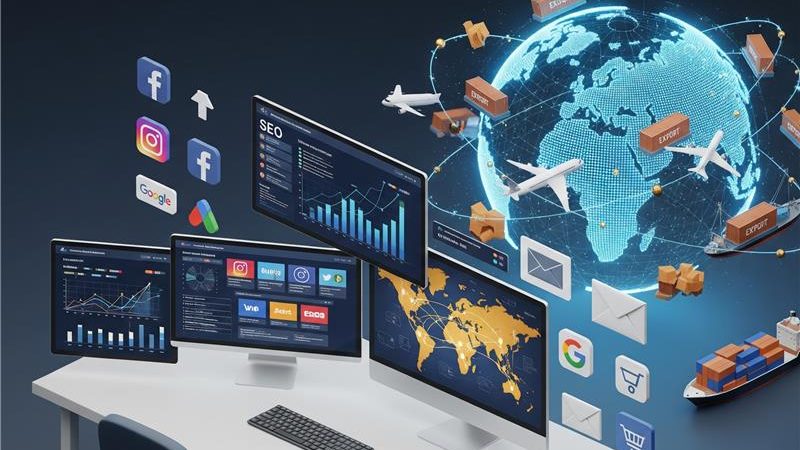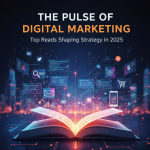Artificial intelligence has become the new backbone of modern marketing, and SEO is no exception. From automating keyword research to predicting content performance, AI tools are completely reshaping how marketers approach search optimization. SEO Workflows The traditional process of manual analysis and guesswork is giving way to intelligent systems that learn, adapt, and optimize at scale.
But with this transformation comes a new challenge understanding how to use these tools effectively without losing the human touch that defines great content. Let’s explore how AI tools are changing SEO workflows and what marketers can do to stay ahead in this evolving digital landscape.
The Evolution of SEO in the Age of AI
Search engine optimization has always been about understanding how people search and how algorithms rank content. But AI has redefined both sides of this equation. Today’s search engines use machine learning, natural language processing (NLP), and semantic search to interpret intent rather than relying purely on keywords.
In response, marketers now need tools that can keep pace. AI-powered platforms analyze massive datasets in seconds, offering insights that used to take hours of manual research. Whether it’s identifying trending topics, optimizing metadata, or predicting which content will perform best, AI is making SEO faster, smarter, and more precise.
This shift doesn’t mean traditional SEO principles no longer matter it means they must evolve alongside AI.

Automating Time-Consuming SEO Tasks
One of the biggest ways AI tools are reshaping SEO workflows is through automation. Tasks that once took teams hours can now be completed in minutes with AI-driven systems.
AI tools can:
- Automate keyword research by analyzing real-time search trends and intent data.
- Optimize on-page content using algorithms that recommend ideal word count, tone, and structure.
- Identify link-building opportunities by scanning the web for high-authority domains and mentions.
- Monitor technical SEO by detecting broken links, crawl errors, and speed issues automatically.
This automation doesn’t replace SEO professionals it enhances their productivity. By handling repetitive tasks, AI allows marketers to focus on strategy, creativity, and user experience the areas where human expertise truly adds value.
Smarter Keyword and Topic Research
Traditional keyword research relied on guesswork and manual analysis of search volume and competition. AI tools now go several steps further by understanding contextual relevance and search intent.
Instead of just identifying which keywords are popular, AI systems can predict which ones will grow in importance. They also help marketers discover long-tail keywords that align with how people naturally speak and search.
For example, tools like SEMrush’s AI Writing Assistant, Ahrefs’ Keyword Generator, and MarketMuse use machine learning to suggest related topics and questions, helping marketers create comprehensive, user-centered content strategies.
This approach allows content creators to craft pages that answer multiple user needs improving ranking potential and engagement simultaneously.
Content Creation and Optimization Powered by AI
Content remains the cornerstone of SEO, and AI tools are revolutionizing how it’s created and optimized. Natural language models now assist marketers in drafting, refining, and enhancing copy while ensuring it meets search intent and brand tone.
AI writing assistants analyze existing top-ranking pages to identify gaps and recommend improvements. They can help you:
- Generate content outlines and meta descriptions.
- Improve readability and keyword balance.
- Suggest headings, questions, and summaries aligned with user intent.
- Ensure your writing matches the tone preferred by your audience.
However, the best results come when humans and AI collaborate. AI provides structure and insight, while human creativity brings emotional depth, storytelling, and authenticity all of which are critical for building trust and engagement.
The Role of AI in Link Building and Outreach
Backlinks remain a core ranking factor, but finding and earning them has always been time-consuming. AI tools now streamline this process by identifying authoritative domains, analyzing link relevance, and even automating outreach campaigns.
For instance, platforms like Pitchbox and BuzzStream use AI to personalize outreach emails based on tone, engagement history, and content match. AI can also flag toxic backlinks that might harm your rankings and suggest better alternatives.
This intelligent approach saves time while ensuring that link-building efforts are targeted, relevant, and compliant with search engine guidelines.
Measuring Performance with AI Analytics
Data-driven decision-making is at the heart of modern SEO, and AI analytics tools are redefining how marketers interpret performance. Rather than simply tracking page views or rankings, AI tools offer deep insights into user intent, engagement quality, and conversion probability.
They can detect subtle patterns such as which content formats keep visitors on-site longer or which topics drive the most conversions. By leveraging these insights, marketers can refine their strategies, repurpose top-performing content, and eliminate low-impact pages through SEO workflows.
AI analytics also make reporting more actionable. Instead SEO Workflows of raw numbers, marketers receive recommendations and visual forecasts that highlight where to focus efforts next.
The Human Element: Why Marketers Still Matter
Despite all the advantages of AI, SEO still requires the human touch. Algorithms may generate insights, but they cannot replace the creativity, empathy, and strategic thinking that come from real people.
Marketers must use AI as a co-pilot, not a replacement. AI can tell you what to optimize, but only humans can decide why it matters. Understanding human emotions, storytelling, and brand voice remains critical to building meaningful relationships with audiences.
The future of SEO belongs to those who can blend AI precision with human intuition using technology to enhance creativity, not suppress it.
Preparing for the Future of AI-Driven SEO
The rise of AI tools signals a permanent evolution in the world of SEO. To stay relevant, marketers must:
- Continuously learn about emerging AI platforms and updates.
- Experiment with automation tools while maintaining quality control.
- Prioritize authentic, human-centered content creation.
- Focus on long-term value rather than short-term ranking hacks.
The marketers who adapt to these changes will gain a major competitive advantage not just in visibility, but in building trust and authority in an AI-driven world.
Platforms like Wiraa, a leading remote job platform, make it easier for businesses to connect with experienced digital marketers, SEO experts, and AI specialists. With Wiraa, you can build a global, flexible team equipped to handle the next generation of SEO challenges with skill and creativity.
Conclusion
AI tools are reshaping SEO workflows from the ground up transforming how marketers research, write, analyze, and strategize. The key to success lies in embracing these innovations while preserving the human creativity that defines impactful marketing.
By using AI to automate tasks, analyze data, and personalize experiences, marketers can focus on strategy and storytelling the areas where humans outperform machines. Platforms like Wiraa make it easier to find professionals who understand both AI and SEO, ensuring your brand stays visible and competitive in this rapidly evolving digital landscape.




